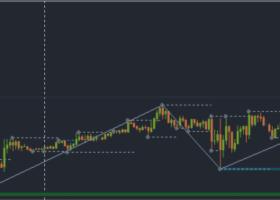The ECB's decision to launch a sovereign bond buying program has eurozone asset prices soaring. European equities have extended their advance; roughly doubling their year to date gains this week. European bonds have rallied, pushing yields to new record lows.
Even Greek bonds have participated. Today Greece's 10-year bond yields is off 41 bp to bring the week's decline to nearly 100 bp. This is despite the ECB's wiggle not to buy Greek bonds under its new program due to an arbitrary country limit. It is also despite the fact that Syriza is likely to secure a plurality of votes in Sunday's election.
There are a number of channels that economists argue that the asset purchases work through. Among the most cited is the portfolio channel. By purchasing the sovereign bonds, the ECB will displace those investors and force them to buy other, and riskier assets by definition. As asset markets rise, the wealth effect may induce households to buy more consumer goods, lifting the CPI.
Others focus on the signaling channel. The ECB is signaling its determination to respond more forcefully to the decline in inflation. That may boost inflation expectations, and inflation over time.
We are not persuaded by the empirical experience that such theoretical impact truly materializes. Yet there is one channel that looks more promising. It is the depreciation of the euro. The eurozone on the aggregate level is not very open (exports plus imports as a proportion of GDP). This means that it requires a larger currency move to move the needle; to have substantial impact.
This Great Graphic is composed on Bloomberg, and shows the Bank for International Settlements real broad trade-weighted index of the euro. It is a monthly time series. At the end of December 2014, it stood at 96.4, which is about 5% above the July 2012 low.
Given the price action so far this month, and including the marked depreciation of the euro against the Swiss franc, the BIS measure will likely fall 90; through the 2012 low. The October 2000 low was set just above 82.00. The policy mix in the euro area in absolute terms and relative to the US suggests a return to those historic lows is probable. This is consistent with our previous note about thebilateral targets and our US dollar's broad trade-weighted index outlook.


